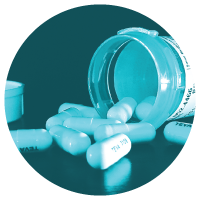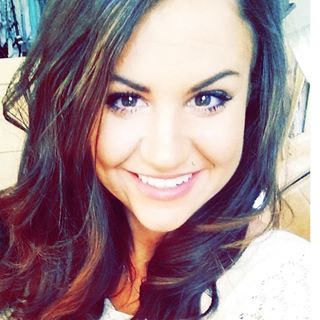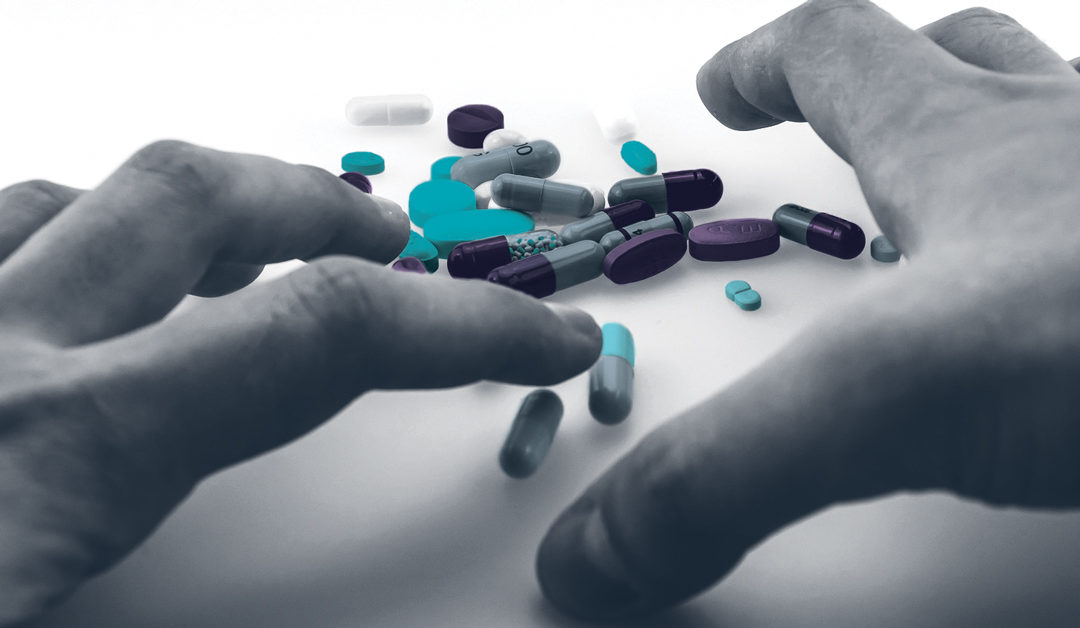My Deadly Addiction to Adderall

More than 25 million people in this country rely on Adderall to treat ADHD, narcolepsy, and other hyperactivity disorders. When prescribed correctly, Adderall is meant to increase attention, focus and concentration by balancing neurotransmitters in the brain. Adderall is a combination of amphetamine and dextroamphetamine – which are highly potent stimulants. This drug has become a serious problem for our youth and it became a deadly problem for me.
by Lara Frazier
(Updated January 21, 2019)
Adderall abuse is often associated with college students – who use the drug to cram for exams, focus while studying, and achieve higher test scores. It’s also known to be used for weight loss among college students. Adderall does its job and it does help people focus. It’s an amphetamine, so when you take it, hunger is removed. You don’t want to eat and you feel weightless. You can stay up all night and party or you can stay up all night and study. It’s known to be used for both.
However, when Adderall is mis-prescribed, it can lead to devastating consequences. This is my story of how I became addicted to Adderall.
Depression & Prescription
In the early months of 2010, I had landed a job as a VP of sales for an entertainment company. I had been out of the workforce for a few years due to my own mistakes in quitting my job, to move out of state, to make my fiancé happy. When I was younger, I was incredibly ambitious, motivated, & determined. I had learned to define happiness as success. My career was the most important thing in my world and without it, I felt empty. So landing this job was a big thing for me. I was finally going to be someone again – a professional, with responsibilities, a title, a team and a salary. I felt hopeful.
I don’t remember the phone call as well as I remember the feelings after the phone call. Two days before I was supposed to start my new job, one of the partners called me to tell me the investors pulled out and they could no longer bring me on board. I was devastated. My identity was tied to my career. My self-esteem had already decreased because I hadn’t held a professional job in the last year. So, when I lost this opportunity, I thought my future was doomed. I cried. I laid on my floor. I went to my friend’s apartment and told her I wanted to die. I was suicidal. Was I going to act on it? No. But, did I feel that pain and desire deeply at the time? Yes.
My friend told me to call my psychiatrist and tell him how I felt. I followed her direction and I picked up the phone and said “I want to die.” He talked with me briefly and then told me he had the answer for me. He said to drive to the pharmacy tomorrow and pick up a prescription. I listened to him. On my drive to the pharmacy, I had no idea what drug I was about to pick up. When I looked at the prescription, I saw that I was prescribed 60mg of Adderall.
I immediately swallowed two orange pills and felt a sensation I had not felt in so very long. Freedom. I felt free. Suddenly, I had hope. I became optimistic. Life was not over; life had just begun. Little did I know that I would become obsessed with this drug and it would tear me apart.
Personality Changes
Adderall played tricks on me. Adderall allowed me to fall back in love with poetry and words, with reading and with writing. Adderall allowed me to feel freedom and relief. I did not have to define myself by my career. I did not have to live up to societal expectations. Adderall made me believe that I was exploring my spirituality and building a relationship with God. Adderall made me feel infinite.
And what was the problem anyway? My parents and friends told me my personality was changing. I was spending more time with myself and more time indoors. I was staying up late and walking to the ocean with my dog. I was going to the park during the day and reading. I was seeing the world from new eyes. I thought they knew nothing. If my personality was changing, it was changing for the better. What did they know? All they cared about was me getting a job and I was tired of it. I was tired of the pressure and I just wanted to live.
I realize, now, I was prescribed Adderall for depression. This wasn’t helpful to me. I didn’t have ADHD so the drug didn’t have the same effects it would have on someone who was unable to focus or concentrate on their own. I could already do these things. Adderall made me hyper-focused and as someone who loved achievements, it helped me achieve a lot.
Psychosis & Recovery
I quickly started taking more of the drug. Months after being prescribed the drug, I had my first experience with drug-induced psychosis. I became paranoid and fearful of people. I thought that people were spying on me. Electronics terrified me as I believed they were taking pictures of me and recording my conversations. For the next four years, I lived in and out of psych wards and treatment centers. Psychosis was very much a part of my life for the four years I was fighting my addiction.
It is more common than one may think. Studies have reported that high levels of Adderall can induce psychosis in a number of patients. According to drugrehab.org, Adderall use carries an increased risk of psychiatric symptoms and mood disorders, even in people who no prior psychiatric problems. These psychiatric symptoms include hearing voices, paranoia, hallucinations, and mania.
Even after four years in recovery, I still have dreams about Adderall. Although I became addicted to a number of other drugs – Adderall was always the drug that led me to relapse. It had a hold of me and it still exists in my memories. The first rush I felt from Adderall was unreal. In the beginning, Adderall made my life better. But within a few months, I was paranoid and psychotic. Even knowing the dangers of Adderall, I still craved it. I always thought it would be different. I was chasing that first high.
Overcoming addiction is possible. Even in the worst of cases, there is always hope. If you find yourself addicted to Adderall or any other drugs, please call Clean Recovery Centers. We can help.

ABOUT LARA
Lara Frazier is a truth-teller, a sobriety warrior and a writer. She is a FIERCE believer in the power of owning our stories and is a strong advocate for addiction recovery. Lara shares a story of healing: in sobriety, through addiction, in life and love, and in all the other big huge moments of fear and magic that we rarely talk about, but we should. Find more of Lara’s work on Instagram @sillylara.


